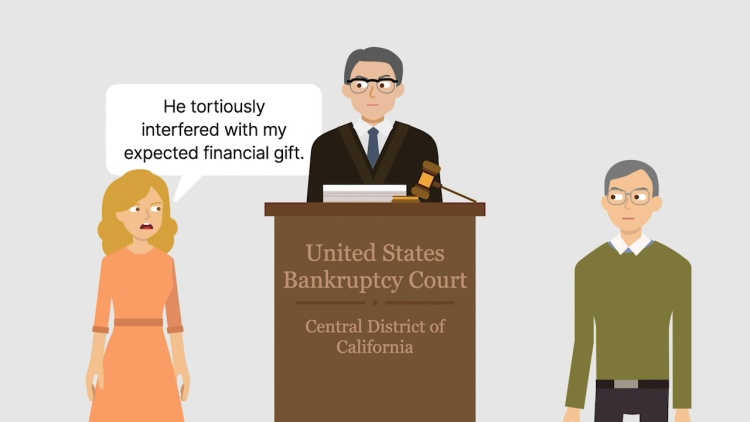Marshall v. Marshall
United States Supreme Court
547 U.S. 293 (2006)
- Written by Craig Conway, LLM
Facts
Vickie Lynn Marshall (defendant), more famously known as Anna Nicole Smith, filed a probate claim in a Texas court challenging the last will and testament of her deceased husband, J. Howard Marshall II. Although J. Howard gave Vickie gifts during their one-year marriage, he did not leave her anything in his will. Instead, J. Howard’s will left his entire estate to his son, E. Pierce Marshall (Pierce) (plaintiff). Vickie claimed that J. Howard had verbally promised to leave her a gift to provide for her financial security. At the same time, Vickie filed for bankruptcy protection under federal law. Pierce filed a proof of claim in Vickie’s federal bankruptcy proceeding, alleging she defamed him when publicly stating that Pierce had engaged in forgery, fraud, and overreaching to gain control of J. Howard’s estate. Vickie filed a counterclaim against Pierce in response, claiming Pierce tortiously interfered with her expected financial gift by purposefully keeping J. Howard away from her. After a trial on the merits, the Bankruptcy Court granted summary judgment in favor of Vickie on her tortious interference claim and awarded her nearly $450 million in compensatory damages and $25 million in punitive damages. Thereafter, the Texas Probate Court found J. Howard’s will to be valid. Pierce then sought review of the Bankruptcy Court’s judgment in federal district court. Specifically, Pierce alleged that the Bankruptcy Court was barred from adjudicating the tortious interference counterclaim. The district court disagreed and found Pierce’s behavior willful, malicious, and fraudulent and awarded Vickie damages. The court of appeals reversed and held that the Bankruptcy Court lacked federal subject-matter jurisdiction over Vickie’s claim. The U.S. Supreme Court granted certiorari to review.
Rule of Law
Issue
Holding and Reasoning (Ginsburg, J.)
What to do next…
Here's why 904,000 law students have relied on our case briefs:
- Written by law professors and practitioners, not other law students. 47,100 briefs, keyed to 995 casebooks. Top-notch customer support.
- The right amount of information, includes the facts, issues, rule of law, holding and reasoning, and any concurrences and dissents.
- Access in your classes, works on your mobile and tablet. Massive library of related video lessons and high quality multiple-choice questions.
- Easy to use, uniform format for every case brief. Written in plain English, not in legalese. Our briefs summarize and simplify; they don’t just repeat the court’s language.





